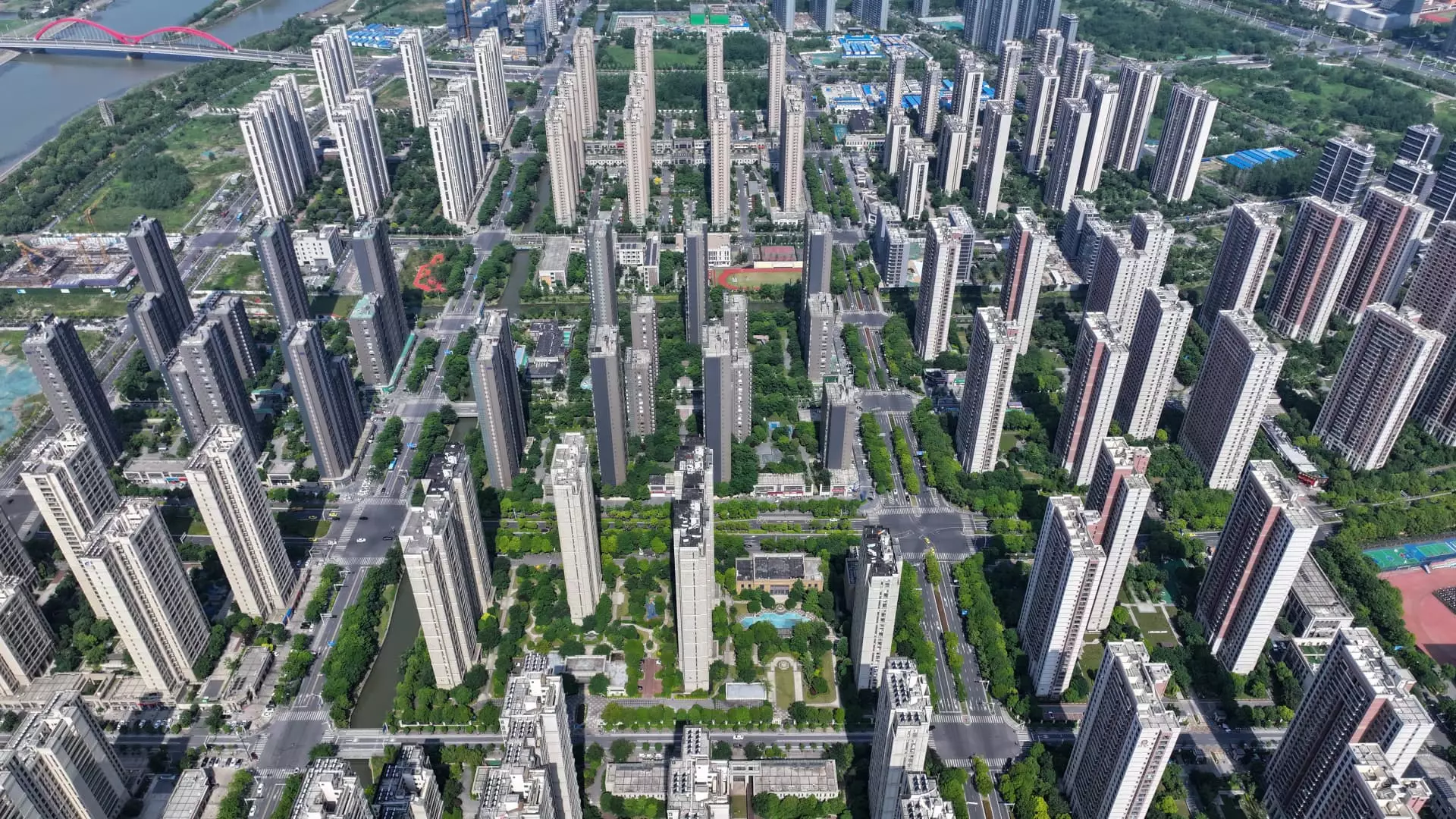Recently, Hong Kong-listed Chinese property stocks witnessed a remarkable surge, reaching their highest values in over a year, driven primarily by the ongoing stimulus efforts from the Chinese government. The real estate sector emerged as the standout performer within the Hang Seng Index, showcasing the potential for a rebound amidst a challenging economic climate. Longfor Group Holdings led the charge with a staggering increase of over 25%, while other major developers like Shimao Group and Kaisa Group reported astonishing gains of 87% and 40.48%, respectively. This uptick in stock prices signals a renewed investor interest in a sector that has been beleaguered for several years.
In response to the persistent struggles of the real estate market, major Chinese cities have begun easing restrictions aimed at bolstering homebuyer confidence. These strategic measures, which include the removal of home purchase restrictions in Guangzhou and the reduction of the required tax-paying period in Shanghai, are designed to stimulate the market. Shenzhen has also implemented a policy that allows prospective buyers the opportunity to purchase an additional apartment, that is expected to bring life to a sluggish market. While government interventions signify a proactive approach to reviving the sector, experts remain cautious about the extent of their effectiveness.
Despite the recent upsurge in property stocks, analysts caution that these measures may only provide a temporary solution to a deeper crisis. Morgan Stanley has expressed skepticism, highlighting that the policy relaxations might not be sufficient to significantly boost demand or stabilize property prices. The firm argues that the ongoing downturn in the sector has created a substantial shortfall in demand that will likely prevent growth from meeting targets. Real estate once contributed over 25% to China’s GDP, but since 2020, a crackdown on excessive corporate debt has left the industry in a prolonged decline.
The Chinese government’s intensified efforts indicate a recognition of the sector’s vital role in the broader economy. Support measures have been ramped up to alleviate financial pressures on households and stabilize the industry. However, amidst a complex web of challenges—including previous policy failures and deep-rooted market issues—the path to recovery remains uncertain. While immediate gains in stock prices are encouraging, a significant turnaround that boosts demand and revitalizes the real estate market may take more than temporary adjustments to regulations.
As the dust settles from the recent market rally, stakeholders in the Chinese real estate sector must navigate a landscape marked by both hope and uncertainty. It will take sustained commitment and possibly more radical reforms to truly heal the wounds inflicted by the past few years of economic turmoil. The immediate recovery of stock prices presents an optimistic facade, yet behind it lingers the sobering reality of a sector desperately yearning for stable growth amidst a shifting economic landscape.


Leave a Reply